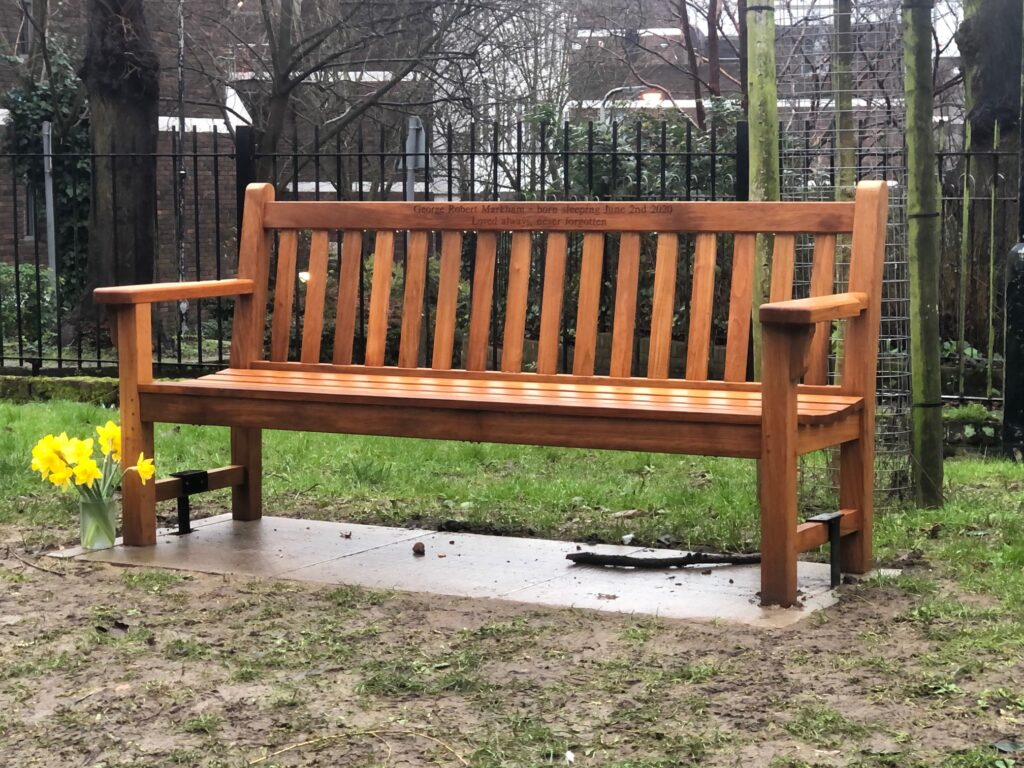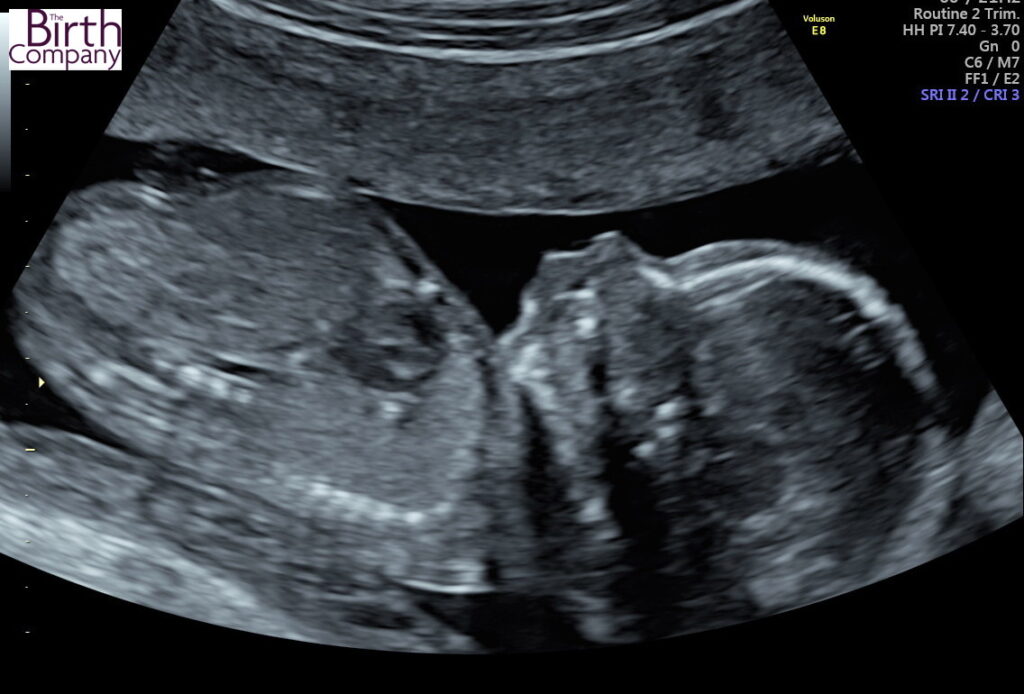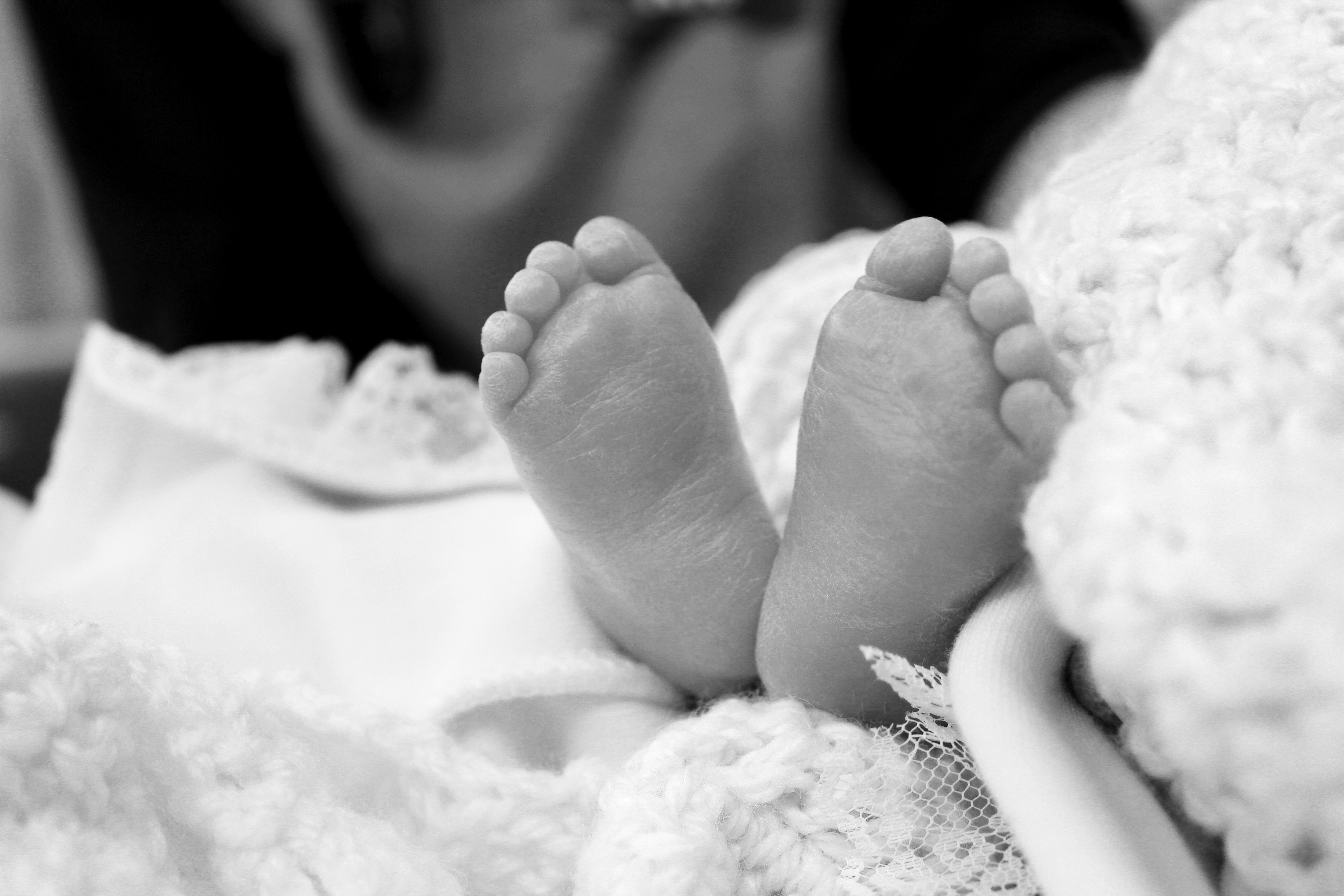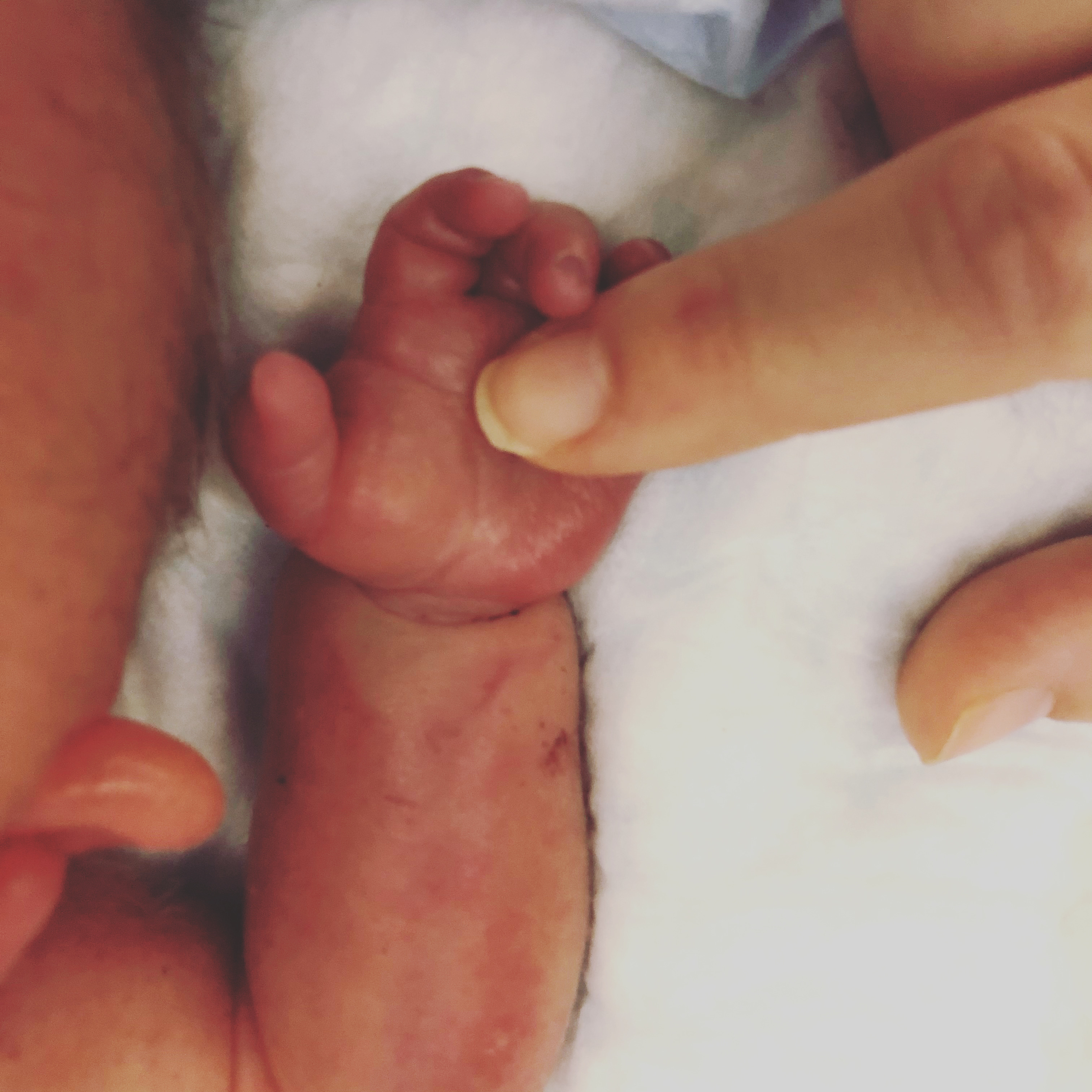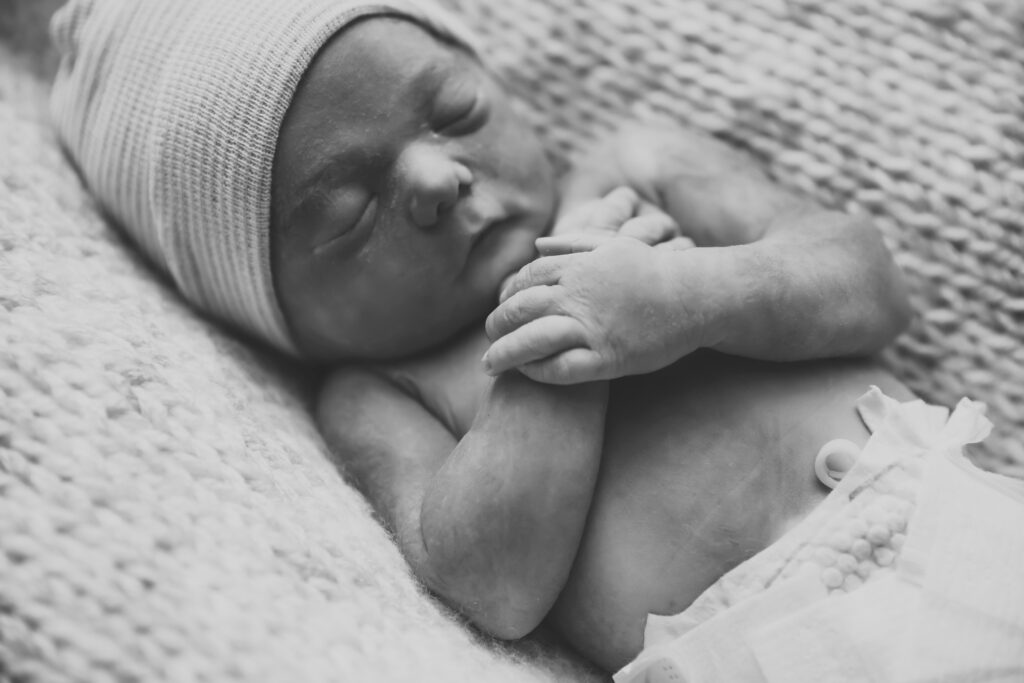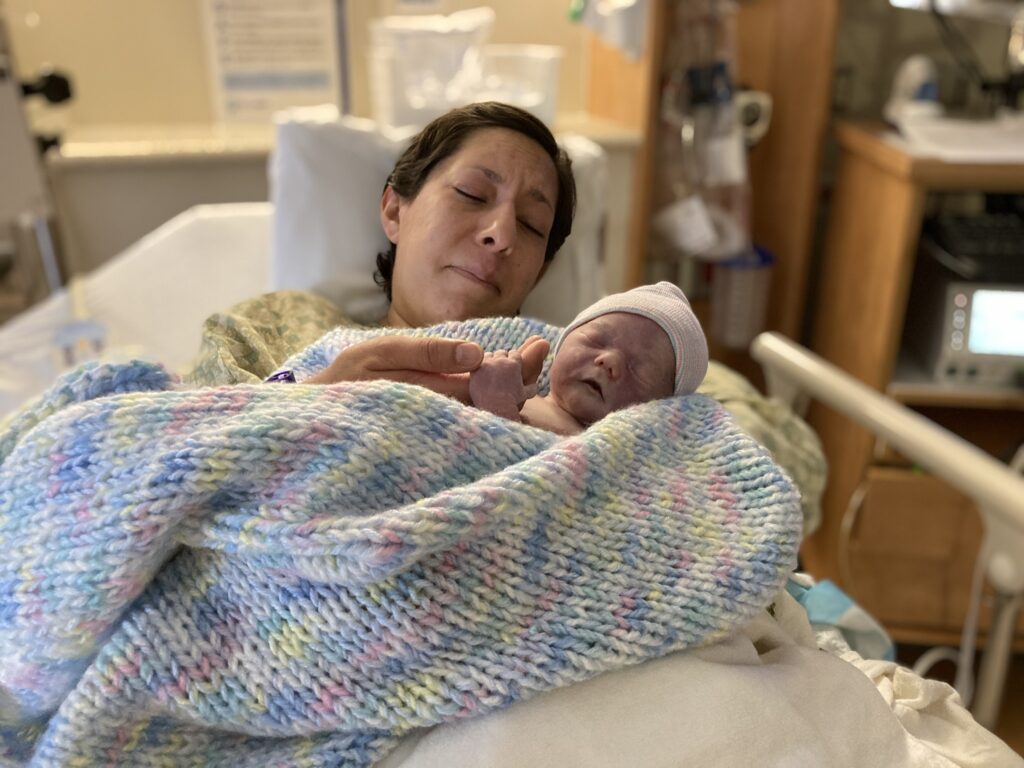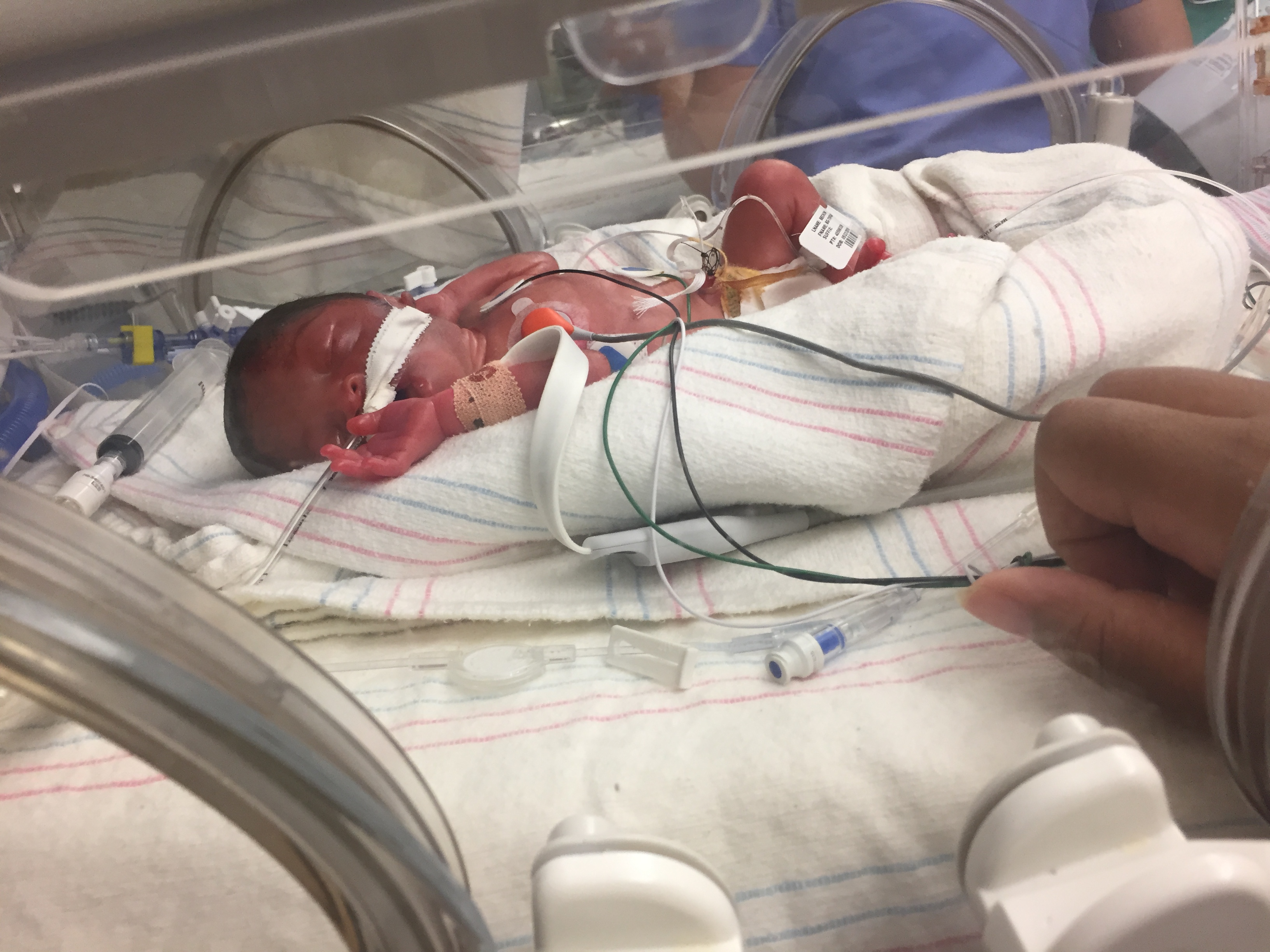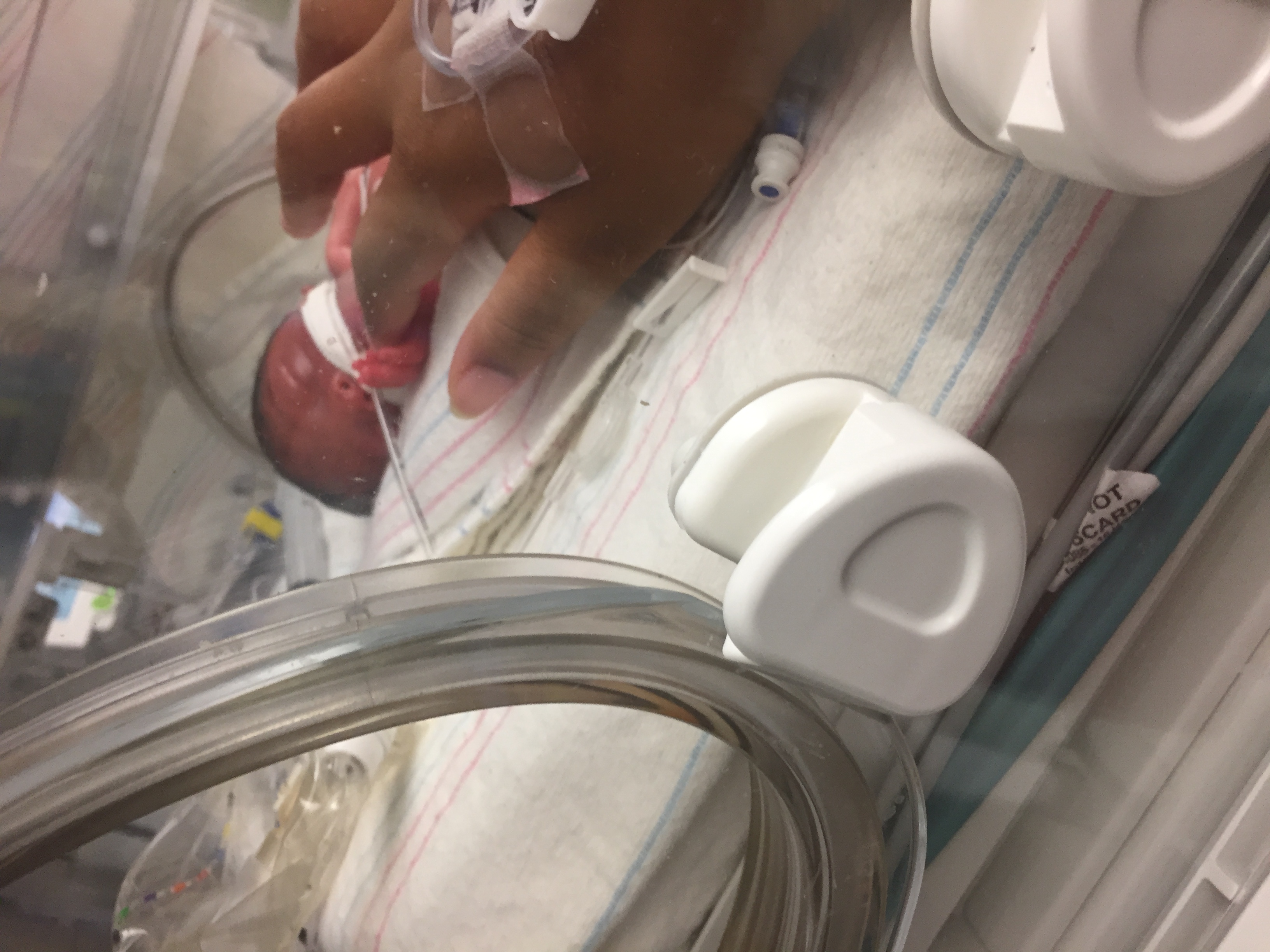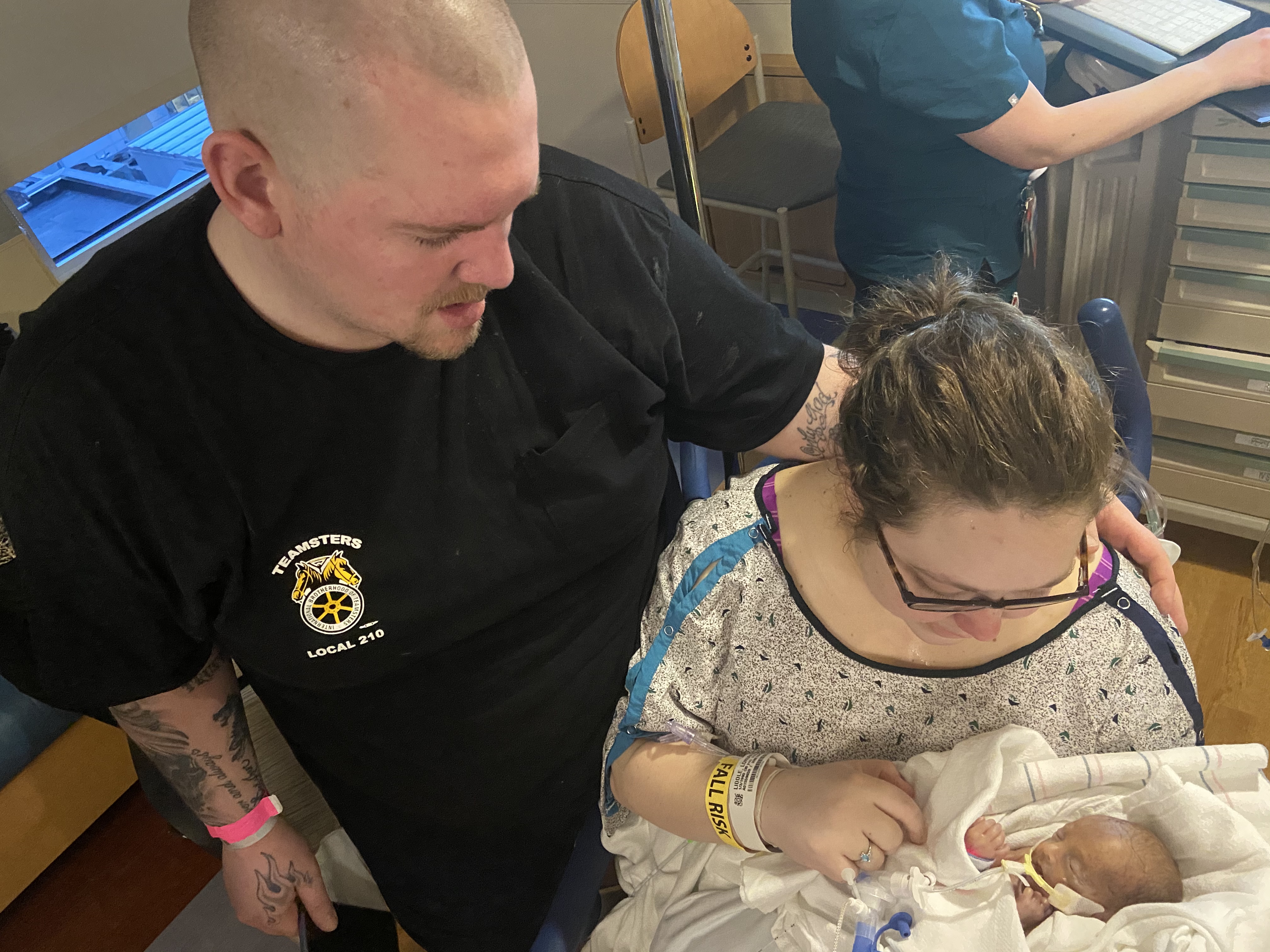Mom Danielle recounts the stillbirth story of her first pregnancy with baby Lydia and how incredibly excited she and her husband Jonah were to have her. Near 30 weeks, she noticed that Lydia wasn’t moving around as much one day, and were concerned enough to go in to be checked out. They didn’t find a heartbeat, and Danielle later delivered Lydia, who was born sleeping.
Watch here (YouTube):
Listen here (podcast):
Time Stamps:
00:00 Lydia Jaelle
01:23 Introduction of Danielle and Jonah
04:17 Pregnancy
11:20 Lydia’s name
17:08 Less movement and going to the hospital
27:45 Silent, silent, silent
31:12 Birth
38:02 After birth
45:42 Pictures
47:35 Arrangements and Lydia’s service
You might appreciate these other episodes:
- Watch/listen to Danielle‘s advice episode of daughter Lydia: Click here
- Watch/listen to Jonah‘s birth episode of daughter Lydia: Click here
Wanna help?
- DONATE! Consider giving a one-time or recurring donation to help with production and hosting costs: Go here for more information.
- SUBSCRIBE! Head over here to subscribe to our YouTube channel and our podcasts.
- SHARE! Spread the word to a loss mom or dad, or those who may be supporting a bereaved parent. Send them a link to this post. Pin one of our graphics on Pinterest.
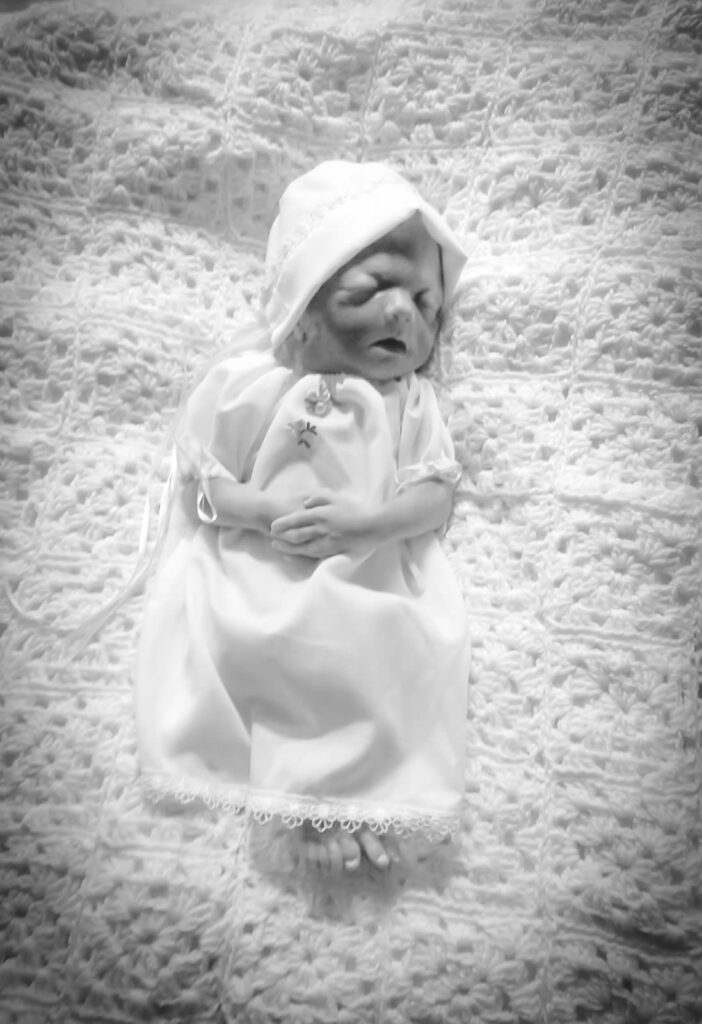
Full Transcription:
Danielle 0:00
Lydia Jaelle.
Danielle 0:08
She was absolutely beautiful and perfect in every way. She had curly brown hair. She had my chin and her daddy’s feet, the cutest button nose. And she was just absolutely adorable at three pounds eight ounces.
Winter 0:26
Welcome to Still A Part of Us a place where moms and dads share the story of their child who was stillborn or who died in infancy. I’m Winter.
Lee 0:32
And I’m Lee. We are grateful you joined us today. Please note that this is a story of loss and has triggers thanks to our loss parents who are willing to be vulnerable and share their children with us. If you’re listening to this podcast, just know that on our YouTube channel, there are pictures and videos that are related to the stories that are being shared.
Winter 0:39
Subscribe and share it with a friend that might need it and tell them to subscribe. Why? Because people need to know that even though our babies are no longer with us. They’re Still A Part of Us.
Winter 0:43
Danielle, thank you so much for coming and talking with us today on Still A Part of Us. I have heard about you for so long. And now it’s just a privilege to meet you. And have you on today to talk about your sweet Lydia. So welcome. Welcome, welcome.
Danielle 1:05
Thank you. Thank you for having me. I’m excited to be here.
Winter 1:07
Yeah, we’re excited for you to be here. So can you tell us a little bit about yourself? Tell us about who you are, kind of what you do. Right right now? And then can you tell us a little bit how your family looked? When Lydia was born?
Danielle 1:16
Absolutely. So I live in South Carolina and the Charleston area with my husband and two living children, Luke and Lyla. I work full time for a large Senior Living company doing leadership development for our team members. I’ve been in this role now for almost 10 years. I’m actually working remotely from here for that company. So I work full time. My husband, Jonah, and I, we’ve been married for almost nine years. So yeah, we moved here to South Carolina, about eight. I guess it was almost eight years ago, I always get so thrown off by it. So this is not our original home.
Winter 2:28
Oh Okay.
Danielle 2:28
We just wanted to come south.
Winter 2:31
Why not?
Danielle 2:32
My husband had found a job here. So we kind of made our way here. But yeah, that’s a little bit about us. Just staying busy with work and with my five year old son and three year old daughter.
Winter 2:46
I’m sure that they do keep you busy. Do you guys like to do you guys have any things that you guys like to do as a family or any personal hobbies?
Danielle 2:55
Yeah, um, we really love the outdoors, we like doing anything outside, whether it’s going on a hike, or even just hanging out in our backyard or going to the park or the beach. We’re not too far from the beach. So we love doing outdoor stuff. I also really enjoy shopping. More antique kind of shopping, like people are really cute antique shops down here. So I really like going to those and looking for unique home decor or furniture or things like that. And my husband’s pretty into that kind of stuff as well. So that’s kind of a non kid related thing that I like to do. And then I spend too much time shopping for my daughter as well.
Winter 3:42
Little girls are super easy to shop for. I’m just saying. Boys. Boys are just the clothes are just not as cute. Exactly. Oh, that’s awesome. Okay, well, and as a little bit of just background, how long ago at the time of this recording was Lydia born?
Danielle 4:06
She was born almost six and a half years ago. So it’s been a good while now. It was October 13, 2014.
Winter 4:17
Yeah. So it’s been a few years now. So I’m grateful that you’ve come on, because I think this will lend a little bit of a different perspective, having a little bit of time. Since your loss. So thank you again, for coming on.
Danielle 4:31
Of course. Yeah.
Winter 4:32
Um, so I understand that Lydia was your first child. Is that right?
Danielle 4:38
Yes. Yep. She was our first baby.
Winter 4:40
Were you guys planning on getting pregnant with her? Was that something that was a little bit more of a surprise, or did you guys have fertility issues, I think kind of runs the gambit. Right?
Danielle 4:51
Yeah, I laugh a little bit because we weren’t exactly trying. But there’s a little bit of a story to it. So we had started to talk about trying, and my husband didn’t really quite feel ready at the time. But I had been on birth control for many years before that. Once I stopped my cycles were so out of whack. Really long, and I was worried about it. I’m like, oh, gosh, am I gonna have trouble conceiving, and I went to my doctor and talked to him about it. He’s like, well, it’s possible, you’re not ovulating. He had given me some tips on tracking it.
Danielle 5:27
So in the meantime I had started researching, and I came across this herbal tea called fertility. I had read that it could help get your cycles on track. Like, oh, let me try this because I love to drink tea.
Winter 5:41
Yeah.
Danielle 5:42
I was not intending to get pregnant quickly on it, I was really only taking it just to get my cycles to be regular. So that we’d be ready when it was time to try. So I started drinking the tea. I don’t know how long it was like, probably a month later. I noticed like, I don’t know, I started getting these weird symptoms. I’m like, Huh could I possibly be pregnant? I didn’t exactly miss a cycle because I had such long cycles, but I ended up taking a test. Surprisingly enough, I was pregnant within a month of starting that tea and I’m like, What?
Winter 6:22
That was not the intention.
Danielle 6:22
Like I did not really know it was gonna happen so fast.
Winter 6:28
So you were kind of planning, but not necessarily planning it either.
Danielle 6:32
Yeah, I’d say buying that tea kind of pushed things along, but we were both super excited over the moon. Yeah, we were just really, really thrilled. So it was the best surprise. Yeah, it was a little bit of a surprise.
Winter 6:47
Yeah. Had you guys been– You’d been married for a few years by that time?
Danielle 6:54
Yeah, we had been married. Gosh, I guess it was. I want to say a year and a half. It was either a half or two and a half years. I get so confused thinking about the timing of all that.
Winter 7:05
Yeah.
Danielle 7:06
But we had just, I guess it was a year and a half because it was July 2012. When we got married , we had just moved to South Carolina. The summer prior.
Winter 7:17
Oh Okay.
Danielle 7:18
The spring got right after we had moved and I found out I was pregnant. So we’re in this new place.
Winter 7:25
Yeah.
Danielle 7:26
New job. No family around.
Winter 7:28
Yeah.
Danielle 7:29
Yeah. And now we’re gonna have a baby. So it was a crazy, but exciting time for sure. .
Winter 7:35
Yeah. Sounds so yeah. Always crazy. It happens that way. So how was your pregnancy? It sounds like you were a little on the sick side. Or had weird-
Danielle 7:45
Yeah.
Winter 7:45
–symptoms.
Danielle 7:47
My pregnancy really wasn’t too bad. I did have some nausea with her. That was the worst of it in terms of symptoms. It really was not that bad. The nausea was on and off. Just in the first trimester. We were really nervous when we found out. We were afraid to tell people because we do know people who’ve had miscarriages. We knew that that was really common. So we waited until we had our first ultrasound before we really started telling too many people, but then the pregnancy itself went really well.
Danielle 8:24
Again, I didn’t have any issues. I felt great after the first trimester. Yeah, I was just super happy. I felt really good. Everything was just going perfectly.
Winter 8:36
Yeah.
Danielle 8:37
Really and she looked great. Every time we went to the doctor to have our appointments, everything always looked perfect with her. So we really didn’t have any concerns, especially after we passed the first trimester. Because at that time, I was under the mindset that once you get through that point and your anatomy scan. If everything looks good with those two things, then you’re fine. I guess I was one of those people who thought, oh, we’re gonna bring home our baby, everything’s going so well. So yeah, I really didn’t have any, any big issues or, or concerns or anything like that throughout the day. And it was, it was a blessing to feel so good.
Winter 9:19
Yeah. Oh, yeah. It is totally because some people are just sick the entire time. And you’re like, yes. Yeah. And at her anatomy scan, were you guys planning on finding out the gender?
Danielle 9:30
Yes. So I am rather impatient. So actually, I booked one of those little boutique ultrasound. I don’t remember if it was 14 or 16 weeks. Whenever it is that you can book those and find out the gender. So we went to one of those places to do that. And we did it in a little bit of a unique way. My husband found out the gender but I did not and then he surprised me and captured it on video. So we went to the store and picked out a boy outfit and a girl outfit. He was supposed to wrap up the outfit in the bag and then watch me open it and record me opening it just to capture the surprise on camera. The ultrasound person told him the gender and then we went to this little Greek restaurant and sat outside and we have a really nice video where I opened it up and Oh no, the little pink outfit.
Danielle 10:34
I was really shocked to be honest, for some reason I always had in my mind that I would only have boys. I don’t know why, oh. I always wanted a girl but I just always was like, I’m never gonna have a girl. I know I’m only gonna have boys. I’m not saying that there’s anything wrong with having boys. But I just always had that in my mind that I would only have boys. So I was really surprised. Super happy. My husband was surprised too. And yeah, that’s how we found out that she was a girl.
Winter 11:09
Awesome. And did you guys choose the name Lydia for? I guess I guess when did you guys choose the name? Did you kind of start formulating when you found out that she was going to be a girl?
Danielle 11:20
Yeah, we started thinking about it pretty early on and debated for a while. And then we picked the name Lydia. Probably sometime when I was in the second trimester, so not too long before she was born. But yeah, we decided on the name Lydia, my husband really wanted it to be a bit biblical name. So I was kind of going through all the female names in the Bible. I really liked Lydia. I liked that it’s somewhat unique as well. Just a pretty name.
Winter 11:52
Yeah.
Danielle 11:52
So that’s how we picked Lydia. Her middle name is actually pretty unique as well. Again, it’s Jaelle. J-a-e-l-l-e. My husband had read about a name and the Bible, which I think is your L is JL it’s like a heroine in the Bible. I don’t know, I was familiar with it.
Winter 12:13
Okay.
Danielle 12:14
And I was like, Well, if we spell it j-a-e-l. People are gonna think it’s jail. We gotta change it. I was not really feeling it. So we had not actually decided on her middle name. But then when we were at the hospital after I gave birth to her, I thought that it was the best name because I knew my husband really liked it. It was unique and, and on. Another cool part about it is the e-l-l-e it’s kind of like my name, Danielle.
Winter 12:45
Yeah.
Danielle 12:46
There’s a little bit of tie.
Winter 12:47
Yeah.
Danielle 12:48
That it has that feature. So that’s how we picked her name.
Winter 12:50
Yeah, very cool. Very cool. Okay. Well I always like to know how the names come about. So. Yeah. So everything is looking great. You’re feeling good. And tell us what happens? What? Yeah. So when do you find out?
Danielle 13:08
Yeah, everything again, was going really well. Actually, at that point in our life. We had rented a place when we first moved here to South Carolina, and there are at least came up. So we ended up house hunting, and bought a new house in August. Then again, Lydia was born in October. So we had just moved into a new house. Every house we went into we were imagining this is where we’re gonna raise our baby.
Danielle 13:36
So anyway, we had moved into this new house, everything in life just felt like it was going so good. We were approaching the end of the pregnancy, or at least I was getting to the third trimester. So I had a baby shower. We had started painting her new room in our new house, and getting the crib set up and everything like that. Everything was just going perfectly fine.
Danielle 14:02
I even remember at one point I just felt so guilty. I kept thanking God every day that we were being I just felt like we were so blessed. We had this beautiful new house. We lived in this new location. We’re having a baby. I don’t know why. I just felt like things were going so good. I just had this weird worry in my mind that something was gonna happen. I don’t even know how to explain it. I just remember having that feeling. Now looking back on it, I’m like, oh, I don’t know. It just always stands out to me that I kind of had that feeling before anything that actually happened.
Winter 14:38
Yeah.
Danielle 14:40
Anyway, yeah. So everything had been going well for about a week or I guess it was two or three weeks before. We had the baby shower and everything. And so it was then a weekend when everything kind of happened. I had been a little bit sick the week before. With sore throats and I can’t remember if I had a little bit of a fever or not. So I had been a little bit sick the week prior. Then by the time the weekend rolled around, I started feeling much better. So I was just excited to be feeling better and doing a lot of stuff. It was a beautiful weekend, we were running errands and going to lunch, and I was washing the mountain of baby clothes that we had for Lydia. We had tons of stuff, not just from our baby shower and gifts that we were given like hand me downs.
Winter 15:35
Oh yeah.
Danielle 15:35
When we were in Virginia for my baby shower we stumbled upon a yard sale that had tons of the cutest baby stuff really lined up all the way up to 18 months.
Danielle 15:49
So anyway, I was doing all this laundry and folding the baby clothes, and I just have this vivid memory from that weekend, standing in my laundry room looking at the little bitty socks and just smiling to myself thinking about how excited I was to be become a mom and how close we were getting to her being born. Again, just feeling so grateful and excited. Because nothing was wrong at that point.
Danielle 16:20
So that was that was Saturday and then also into Sunday, I was still kind of doing doing the laundry. Sunday morning, we actually let me backup. So that Saturday, I went to chick-fil-a for dinner, and picked up food and I picked up a strawberry milkshake because that was one of the things I always craved with Lydia.
Winter 16:43
Really?
Danielle 16:44
Strawberries and ice cream. So I treated myself to a strawberry milkshake that night and came home. I remember saying to my husband, oh, Lydia is dancing around like crazy. Tonight, like she was going nuts in my belly. And I thought it was so cute. Like, Oh, she loved that strawberry milkshake.
Winter 17:04
Was she fairly active generally, or like,
Danielle 17:08
It was on and off. So at that point in my pregnancy, I was 30 weeks. So once you get to 28 weeks, their movements should be pretty predictable, which I had no idea at the time. But I have since learned that. But yeah, her movements would kind of be on and off. So even the weekend prior to that, and the weekend before that there would be times where I’m like, is she moving enough? And I wasn’t really sure.
Danielle 17:35
I had expressed it to my husband and I even mentioned it to the nurse at my last doctor’s visit, which was two weeks prior to the time we lost her. I said is it normal for her to be quiet sometimes and not move as much? And she’s just like, Well if that happens, just drink some juice, lay down, or eat something cold, some ice cream. And that should get her going again. So she really kind of just made it seem like it wasn’t a big deal. Maybe she just needs something to wake her up. So I had that in the back of my mind. And I’d even I guess mentioned, I don’t remember this specifically, but my husband remembers me asking the doctor at that visit. Should I be counting kicks? Because he asked me Are you feeling the baby move? That’s all the doctor asked.
Winter 18:25
Yeah.
Danielle 18:25
I was like, Well, yeah… What is strange? I don’t know. That’s a strange question to me. Because that’s a yes or no.
Winter 18:32
Yeah, yeah.
Danielle 18:33
A question. And yes. Like, that’s not really going to tell him much. And then No, it’s like, that would be a horrible thing.
Winter 18:40
Yeah.
Danielle 18:40
Just here.
Winter 18:42
But you basically asked him, you specifically asked him if you should be counting kicks?
Danielle 18:48
Yes. So you didn’t even remember it till my husband brought it up. Then once he mentioned that, I do kind of remember asking him that, like, do I need to count the movements because I wasn’t really sure what you were supposed to do.
Winter 19:00
Okay. Okay.
Danielle 19:01
And my doctor was a much older doctor. So he’d been practicing for many years. I kind of feel like he had that old school mindset. I would ask him different things. I even asked him Can I sleep on my back? Because I had read that you should not sleep on your back during pregnancy, and I was having trouble getting comfortable. He told me Oh, that’s fine. It’s an old wives tale, do what you need to do to get comfortable. So, I’m like, okay, so looking back on it, I’m like, oh, I loved him as a person. He was a great man. But as a doctor, I’m like, gosh, I really, really wish I had gone to somebody who was more focused on the latest research.
Winter 19:44
Right.
Danielle 19:44
Really telling me what I need to do to keep my baby safe.
Winter 19:48
Yeah.
Danielle 19:48
Versus thinking these things are old wives tales. So anyway she again, she was somewhat active I guess, but I just wasn’t. I was not aware that I really needed to pay attention to her movements that like. It wouldn’t be normal for her to slow down sometimes.
Danielle 20:07
Yeah.
Danielle 20:09
I was in one of those due date groups on Facebook. I don’t know if you’re familiar with those, but
Winter 20:15
Yep.
Danielle 20:15
It’s the December due date group for all babies.
Winter 20:19
Yep. Yeah.
Danielle 20:20
We’re all women who were pregnant with babies during December. So I was in one of those. I remember sometimes I’d see people post about their baby not moving much. Then everyone’s like, oh, they’re probably just sleepy. Like, my baby did that too, when they woke up. So I remembered reading posts like that. So I just assumed that sometimes babies get sleepy and they slow down.
Winter 20:40
Yeah.
Danielle 20:41
So that’s all I knew about movement. So anyway, that Saturday night again, she was moving around like crazy. Then my husband and I watched a movie. It was super late that night. I went to bed, and I was wiped out that night. I remember laying down in bed. I do remember thinking at the time Oh, she’s not kicking around. Usually when I’d lay in bed, she’d give me some kicks once I lay down, but I was like, Oh, I’m up later than normal. I’m so tired. I’m sure she’s tired.
Danielle 21:13
So I went to bed and I swear, I slept on my back that night, because I was so tired. Again, my doctor, I remember thinking I probably shouldn’t, but I’m like, well, he said, it was okay.
Winter 21:24
Yeah.
Danielle 21:24
I’m so tired. I just need to get comfortable. So I slept that way that night. Then the next morning, it was a Sunday. So we got up and went to church. Like we normally do on a Sunday morning. After church, we went to lunch, and we finally decided, like, yeah, let’s get maternity photos. I was gonna book those. Then we went out shopping for rugs. It was just a totally normal day.
Winter 21:55
Yeah.
Danielle 21:57
Then we got back home. And I started doing more of that laundry that I was talking about earlier. At one point that day it was probably mid afternoon. I was just sitting on the floor, in the room going through that laundry, and my sweet dog was there with me. I remember I was sitting on the floor, and she came in and rested her head by my belly. I just thought it was the sweetest thing. Like she wanted to be close to the baby or something.
Winter 22:24
Yeah.
Danielle 22:24
At that moment, I remember I just started crying. It was so weird. I just felt really emotional out of the blue. Now when I look back on it, I’m like, did I subconsciously know, something was going on? Did my dog know something was going on? At the time, mentally I didn’t think anything was wrong, but I was super emotional. My dog was being all cuddly.
Danielle 22:49
Then soon after that, I was like, gosh, I’m really not feeling Lydia move much today. So I went downstairs and told my husband, he was outside on our screen and porch. I told him, I was feeling a little bit worried because she really wasn’t moving much. We talked about it for a few minutes. But he’s like, Well you’ve felt that way last weekend, too. Which was true the weekend prior I was like, is she moving enough? So we talked about what we’re like, Yeah, that’s true. She’s probably just sleepy. So we decided there’s really nothing to be worried about, and carried on about the day
Danielle 23:29
that I remember, I took my dog for a walk and the day kind of went on.
Danielle 23:34
Then that evening, like I mentioned being emotional before , I wasn’t in a horrible mood. I just wanted to cry about everything. Again, it was so weird. I didn’t want to cook dinner, like we had nothing to cook. I remember we drove to Walmart, just to go get something to cook up really quick. And I just wanted to get out of there cause again, I was so emotional for whatever reason, and then came home and cooked dinner.
Danielle 23:34
We sat down on the couch after dinner. At the time, we were really into this show The Walking Dead, which is not something I would typically be into zombies, but my husband was totally into it. And I got into it. So we sat down to watch the walking dead. And gosh, she’s not moving and that was really concerning to me. Because after dinner at night when I sat on the couch that was her guaranteed movement is now. So since she still wasn’t moving, and I had already been worried earlier in the day, I was like okay, this is freaking me out a little bit, but I didn’t actually say anything to my husband yet. I didn’t want to overwhelm him.
Danielle 24:42
So I got up and I made a bowl of ice cream. I was doing everything that the nurse told me to do. I got ice cream. Then I drank orange juice right after. It was a really disgusting mix. I’m like all the sugar.
Winter 24:55
I know I’m like you’re all sugared up now.
Danielle 24:57
Yeah, like oh, I was doing anything I could to get her to move and poking my belly.
Winter 25:04
Yeah, yeah.
Danielle 25:05
And nothing was going on. And so in my head, I’m really starting to worry, but trying just to stay calm. And then I started texting my best friend Nancy. She’s had a baby before or had a baby before at the time. So I was just telling her what was going on. I’m not really feeling the baby move. I don’t know what to do. And she was like you probably should call your on-call doctor, just to let them know.
Danielle 25:34
At that point, it was a Sunday night. So I’m like, should I really call or should I just wait till tomorrow? I was like, Yeah, she’s right. So I called. And they said, Yeah, why don’t you come on down to labor and delivery, and we’ll hook you up to the monitor and check things out, just to be safe. And that has always kind of stuck in my mind that she said, just to be safe. Um, so I was like, okay, so I went back downstairs, told my husband everything that was going on. At that point, I hadn’t even told him I was calling because I just didn’t want to know. And he was totally supportive. You know, all right. Well, let’s go.
Danielle 26:15
So we went and started getting ready. We almost didn’t even take our dog out to go potty cause I was thinking we’re gonna go, we’ll be back in a couple hours. But we decided just to let her out real quick. So we took her out. Then I changed my clothes. Again I lost it in the bathroom. I just started bawling. I didn’t really think that something terrible had happened to our baby. The last thing on my mind was that she had died. But I was just so worried and like, what’s going on? Are we going to have a baby tonight? I’m not ready yet.
Winter 26:49
Yeah.
Danielle 26:51
Because again, I was 30 weeks at the time. So I just was like, What is going on? So we made our way to the hospital, which was about 30-35 minutes from our house. Yeah, I vividly remember that drive. My husband held my hand the whole way.I just had my hand on my belly. In my head praying and praying and talking to Lydia in my head, like, come on, just kick me just do something. And I felt one time I thought maybe she did kick but I wasn’t really sure. Um, so we got to the hospital. And we had to go in through the emergency room, because of the time of day, it was late at night. I don’t know, 10 o’clock by that point. I even remember, I was like, I’m sorry to my husband, cause he had to work at five the next morning. I’m like, you’re going to be so tired. I was just worried about all these random things.
Winter 27:44
Yeah.
Danielle 27:45
So anyway, we got to the hospital. And then this nurse from labor and delivery, named Susie, she was super sweet, super cheery and upbeat. She came in and greeted us. We were just making small talk walking down to the labor and delivery and we got to a room, she had me change into a gown. I did that and I remember changing into the gown and feeling like okay, we’re finally gonna make sure everything’s fine.
Danielle 28:15
So I got into the hospital bed, and Susie got the Doppler out to try to find Lydia’s heartbeat. And yeah, at that point it was, I know, a lot of people saw this. And it really was the loudest silence I’ve ever heard. It was just pure seeing if she’s moving all over my belly. And usually right away, they pick it up at that point.
Winter 28:39
Yeah.
Danielle 28:40
It was just silent, silent, silent. But then a few times, they would pick up my heartbeat. I didn’t know that it was mine or hers. But I’m like we found it! Oh, there it is, but it was just mine. So that was going on for what felt like forever, but I don’t know how long that was. She went and got another nurse to come and help her. So she came in, they were scrambling around. I’m just thinking in my head what in the world is going on? My husband’s next to me holding my hand still. Then they’re like, Okay, let’s go, we have to go get the doctor to do an ultrasound. So I’m like, okay finally please bring the ultrasound in here. Let’s see that everything’s fine. I was getting really kind of frustrated in my head at that point, because I just wanted to know that everything was fine.
Danielle 29:34
So this doctor came in who we had never seen or met before, and rolled in this little ultrasound machine and pulled it up on my left side. I looked over and first thing I saw was Lydia’s perfect little profile with her little button nose and then he moved the wand and it was right over her heart. And he said, I’m very Sorry, I can’t remember his exact words. It was like, I think at first he said I think there’s no heartbeat. But then he’s like, I mean, I know there’s no heartbeat. She’s gone. I was just in complete shock. I couldn’t look at him, I couldn’t look at my husband, I was just sitting or laying there in the bed, and looking at this wall in front of me staring at this wall in complete shock, trying to understand what he just said.
Danielle 30:35
It was just the worst, worst possible thing to have to hear. As a mother that was really, really hard to take in. Immediately I started thinking what did I do? How could this happen? You know? Did I? Was it something from me being sick last week, the nurse told me I could take a Tylenol should I have not taken the Tylenol? Like, did I eat lunch and not microwave it long enough?
Winter 31:09
Yeah.
Danielle 31:10
Every-
Winter 31:11
Every possible thing.
Danielle 31:12
I was totally blaming myself. What did I do? Because I am her mother. And it was my job I felt to protect her. I was just completely shocked and we had known that at that point that she was healthy. So it didn’t seem like something else happened. But we weren’t really sure at that point. But anyway, I was just laying there in shock. And my sweet husband dropped down to the floor and started praying, which was very sweet and needed at the time. Then, after the doctor left the room I don’t even remember the conversation my husband and I had, we were both just completely shocked, and trying to understand what happened.
Danielle 31:59
Then they had the doctor on call come in the one who I had called, and she came in soon after, and started talking about the plan. Obviously, she said, She’s very sorry, she was very caring and everything like that. But then it’s like we need to talk about next steps. You need to be induced. I hadn’t even thought about that yet.
Winter 32:21
Right.
Danielle 32:22
Like, wait a minute I just found out my baby died. I guess my mind hadn’t gone yet to what happens next., Obviously, she’s not just going to disappear. Um, so she started talking about that. And I had already been like, I don’t know why I was so terrified about the whole process of giving birth, even to a live baby. So I was way even more terrified of having to do that with my baby who died. So I’m like can’t we do a C-section? Is there anything else? At that point my mind’s not really even working the way that it should? I just wanted wanted it? I don’t know, I don’t know.
Winter 33:07
Yeah.
Danielle 33:07
It’s like, is a C-section an option? She said that it was but that they wouldn’t recommend it, the recovery is longer. Then also that would make it more difficult for having another baby or like, we’d have to wait longer, we wanted to have another baby. I thought about it some more. It was so late that night, they weren’t going to start anything till the next morning. So I did think about it more and decided to move ahead with the induction versus doing a C-section. But they did end up rolling us to another room where that would be a little bit more private, because we’re in labor and delivery. There’s all these moms giving birth to living children, lots of crying, lots of baby noises going on. So they moved me down to another room. That would be a little bit more private.
Danielle 34:02
At that point my husband, I asked him to let a few people know. I think my best friend Nancy had been checking in on me since I had been texting with her and he called my dad and at some point called my mom too, and I don’t know, I just couldn’t bear to talk to anybody. I couldn’t bear to text anybody. I just could not bear to be the one to get the words out to anybody to let them know that our daughter had died. So thankfully, my husband found the strength to make those phone calls and, and do those things.
Danielle 34:56
So anyway, we stayed at the hospital that night. I guess somehow I slept. I think they’d given me some Ambien. So I slept for a little bit. Then the next morning, early in the morning, they put in the site attack and started the induction process. By then, my dad had driven down from Virginia. I think he drove down. Yeah, I think he drove down. He was in New York and flew back to Virginia and drove down to be with us and my mom and stepdad, they were living nearby at the time, they had just moved down here as well. So they came to the hospital and visited with us.
Danielle 35:42
But anyway, early that morning, they started the induction process, and that kind of went on throughout the day. I did have an epidural. That was recommended to me and I was just like, so nervous about the pain and stuff. I was like, okay, so I did the epidural.
Danielle 35:56
Then throughout the day things were progressing slowly, they weren’t, weren’t really moving along that fast. I even remember early evening, I wasn’t that far along. I don’t remember how dilated I was, but it really wasn’t that much. So I was okay, but then all of a sudden not very long after the doctor checked me. I started feeling a lot of pressure and had to get them to come in and check.
Danielle 36:10
All of a sudden I was ready to go. They’re like, you need to start pushing now. I was like no. I don’t know, at that point. I guess waiting up to it I was obviously very upset throughout the day. But I was hanging in there. But then once I found out it was time to push I was so upset. I guess I just didn’t want– I felt like I was approaching the end, I guess. Once she goes out this is really going to be over. I didn’t feel ready, but I don’t think I ever would have felt ready.
Danielle 35:56
So anyway, I started pushing and it really wasn’t anything too bad. I don’t know exactly how long I pushed, but throughout the whole thing, I just kept praying for a miracle. Like, please God, let them be wrong. Please, let us hear her cry. This is all still thinking in my head. There can be some kind of miracle. They could be wrong. But she was born and that. I know. I said earlier that not hearing the heartbeat was the loudest silence, but I guess truly once she was born, and we heard the silence that was really the loudest silence I’ve ever heard.
Danielle 37:40
I knew she was out and I wasn’t hearing anything. They had asked me like, did I want her to be cleaned up before they handed it to me? Or did I want them to just hand her to me and I was just so scared. I didn’t know what she was gonna look like. So I’d ask them to clean her up.
Winter 37:58
Nobody had talked to you and none of the nurses or doctors had?
Danielle 38:01
Well..
Winter 38:02
Talk to you?
Danielle 38:02
That is a good question. They did. The nurses there were amazing. They were so sweet. and supportive. Yeah, before I gave birth throughout that day, they talked to me some. Do you want to hold her and I was like, Oh, I don’t know. I was so scared and didn’t know what to do, but they really encouraged me to do that. I’m so– I can’t imagine if I hadn’t held her.
Danielle 38:29
Then they also talked about Now I Lay Me Down to Sleep photography. They asked if we wanted pictures. Again at that time I’m like pictures? It’s not something I ever thought about, but I’m so grateful that we said yes and opted to do that. But yeah, they did say I could have cleaned up, or put on me. They didn’t really know how she would look. I guess it’s kind of hard to say cause they don’t know how long she has been– Yeah, how long she’d been gone and that kind of thing.
Danielle 38:59
So I had them clean her up, but I could see them taking her over to the warmer thing to get her cleaned up and I remember it was so sad. I’m like I just want her now. That’s what I was thinking of, like give me my baby. But they cleaned her up and handed her to me and she was just absolutely beautiful. I was truly amazed because I didn’t know what to expect especially since she had passed away, but she just looked perfect. She looks like a perfect beautiful baby. She had these cute little lips and again, I was shocked by her hair. I couldn’t believe she had dark hair. The little waves in it were so cute. She was just precious and so beautiful. I held her in my arms and did not want to let her go ever.
Danielle 39:58
We did learn that the umbilical cord was very tight around her neck and her right ankle both. It was so tight that there were indentations on her neck and her ankle. So they were fairly certain that is what happened to cause her to pass away, unfortunately. It was 7:56pm. Okay, and that is so weird. I literally just said that and the clock on my laptop is 7:56pm.
Winter 40:33
Yeah, I was about to say I was like, Oh, yeah, that is so.
Danielle 40:37
Um, so she was born at 7:56pm. We held her that night for as long as we could. Again, my dad was there, and my mom and stepdad, they all got to meet her. At the time again, we were new to South Carolina, we didn’t have many friends here or much of a support system. But we had been in a small group at church and had some friends through that.
Danielle 41:07
They were just the biggest blessing throughout all of this. They came to the church to or I’m sorry, to the hospital too. A couple of them got to meet Lydia at some point. We were just so grateful. I was proud to show her off. It is kind of weird. You know it was so horrible what had happened. But to me, she’s this beautiful, perfect baby. I wanted everybody to see her and know her. I wanted as many people to know her as we could.
Danielle 41:39
So anyway, late that night, the nurses did suggest that she go to the morgue. I don’t think they actually said it that way. I wasn’t even really thinking about it. But they really encouraged me to try to rest. They would bring her back in the morning. So I reluctantly agreed to it. They had to give me Ambien to get me to sleep again. But I did sleep a little bit.
Danielle 42:07
Every time I woke up, I’m just like, Where’s my baby? I want my baby back. So as soon as I woke up that morning, I was trying to page the nurse to bring her back to me as quickly as possible. Because it was terrible to be without her. I just wanted her there. I wish I could have held her all night like I wanted to. But I was afraid that I dropped her or something because I really was getting so tired. And they brought her back that morning. And then we spent some time with her for several hours that day, the day after she was born.
Danielle 42:45
We didn’t have a cuddle cot or anything like that. So I just held her in my arms, and my husband held her some. But I will say I do feel kind of guilty that I didn’t really let anybody else hold her other than my husband. I never let my mom or my dad hold her. I really wish I could have given them that experience. My husband’s parents did come down too, but it was later that day. So they didn’t actually get to hold her or anything either. It makes me sad now that nobody else got to know what it was like to hold her except for me and my husband. But selfishly, I was like, this is the only time I’m going to get to hold my baby. I want to do it for as long as I can.
Danielle 43:33
So we had talked to the doctor about whether or not to do an autopsy. The doctor that we had seen at the time did recommend it just to make sure there were no other issues. It was pretty obvious that it was the cord accident. But with that being our first baby, they said it’s probably good just to rule other things out. So we did agree to do the autopsy.
Danielle 44:00
So throughout that morning, the nurse kept talking to me about how they have to start the autopsy within a certain amount of time. That we’d have to move ahead with that fairly soon. Throughout that day, Lydia was changing a lot. Her color was changing her skin, it started peeling some and that was really devastating to see. In my mind it wasn’t gonna. I was gonna hold her forever. Nobody was gonna take my baby from me, but the nurse kept telling me. Then my husband, he’s like, It probably is going to be time soon just because of how she was changing so.
Winter 44:43
Did your hospital have a policy on how long you could actually keep her? Or was they didn’t tell you and there was nothing in particular?
Danielle 44:51
Yeah, they didn’t really say anything like that there was any sort of policy but yeah, let’s just like that next morning after we had are they Were pretty, like, I felt like the one nurse. Like she was trying to be nice, but I felt like she was getting a little pushy like with, we have to, it’s time to take her. I don’t know exactly what time it was, but it was probably around 12 or one that day that I handed her over to the nurse, which was really hard to have to hand her over kind of for the last time. So
Winter 45:24
Yeah, that’s the worst thing ever.
Danielle 45:27
It really is. Yeah. So that was our time spent with Lydia at the hospital. Sorry if that was a super long story.
Winter 45:37
I actually wanted to ask you so you got your picture. At least you got pictures, say and with. So I lay me down to sleep. And were you guys able to get handprints or footprints or molds or anything like that while you were there?
Danielle 45:52
Yes. Yeah, the now I leave me down to sleep photographer. She was amazing. She got beautiful pictures that I’m forever grateful for. They did get Lydia’s handprints and footprints, which I’m so thankful for as well. I do wish I had been given more guidance in terms of how to make the most of our time with her because I just felt so scared. I just had her wrapped up in that blanket and her gown for so long.
Danielle 46:22
I was scared to really look at her all over. I didn’t think that I could give her a bath. None of these things crossed my mind, or brush your hair. Things that I’ve heard other parents have done when their babies are stillborn. I wish somebody had told me I could do those things. Because, again, they didn’t cross my mind. I was just too scared to even think about it. I was too scared to lift up her gown and see all of her because I didn’t know what she would look like?
Winter 47:00
Yeah.
Danielle 47:00
So, I’m very grateful for what they did to give us just those things. I wish we could have done– I wish there was some kind of guide book for somebody who’s lost a baby. Which I’ve actually thought about making one to give to the hospital to give to parents going through loss. Just things for them to consider because nobody goes in there prepared for that, or knowing what to do.
Winter 47:27
No, you don’t have any clue what you’re doing.
Danielle 47:31
Yeah.
Winter 47:32
You have no clue. It just blindsides you.
Danielle 47:35
Yeah. Also in the hospital they’re asking us what we plan to do. Do we want to have her cremated or buried? That was an awful decision to have to make, we had no idea what to do. It felt like they kept coming in asking have you made your decision? Have you picked your funeral home yet? I’m like, No, like, I don’t even know anything about a funeral home. What ones there are.
Danielle 48:05
Eventually, we just picked one that was somewhat close to home. For me I could not let my mind think about cremation as an option at the time. I guess it was just too much for me to understand. That she would just suddenly like, I don’t know, I felt like her body would just suddenly disappear. I just couldn’t for myself. I couldn’t wrap my head around it.
Danielle 48:30
I remember some people trying to encourage me to do that because then she could technically be with us wherever in our home. Again, we were new to this state. So we don’t know where we’ll be buried one day. We did not have her cremated. So what we did is we found a cemetery that has a mausoleum.
Winter 48:49
Oh okay.
Danielle 48:51
She’s in a mausoleum so she could easily we could take her casket out and move her at some point. But I have mixed feelings about that now too looking back. When she first passed away we would, I could not go to sleep without going to the cemetery and telling her goodnight. I just felt so terrible leaving her there all by herself.
Danielle 49:18
Even now six and a half years later, every time I visit her, I’m just like, I’m so sorry. I hate leaving, even though I know she’s not actually there. Personally, I believe she’s in heaven. But just remembering her little cast it in her body going in there is really hard and leaving her there, but that was kind of what I guess was best. At the time when we had to make that decision that that was all I could get myself to do.
Danielle 49:50
We did have a memorial service for her. It was a smaller service. My best friends came down for it and some of Jonah’s family up in Virginia and West Virginia came down. We did a service for her a few days later.
Danielle 50:11
We had opted, even for an open casket, because again I just felt so proud of her and wanted people to meet her and see her. That was really hard. I wasn’t expecting her to look so different. In the casket I felt like she didn’t look like the Lydia that I held a few days before. So that was really hard. I kept holding, or putting her hand around my finger, and her hand was so stiff. That was just really, really hard for me. But I was really grateful to see her again, though, and give her that service. That service was really difficult for me. I can hardly remember anything about it other than actually seeing her and touching her. I don’t remember anything that anybody said, or anything like that. I was just still in too much shock.
Danielle 51:11
I do remember my brother asked if I wanted him to take any pictures at the service, which I think was really nice of him to ask. He and my sister in law had come down a couple days prior to that to be there for us. I was like, No. I don’t know, I was just so angry to be at a funeral service for my daughter. I told him no, but looking back, I really wish I had said yes, because I don’t remember a lot about it. I was not in a good place at the time. But I really wish I could have had some memories of that service to look back on.
Winter 51:52
Yeah.
Danielle 51:54
Then when we got to the cemetery. That part was nicer. They had taken us in one of those small limos, my husband and I. It was just such a surreal experience. We were in the backseat, me, then our daughter’s casket and my husband. I remember driving there and like, this is not real. This is not happening.
Winter 52:13
Oh.
Danielle 52:14
It was so bizarre. Then we got to the cemetery. My best friends had gone and picked up my dog, which was so sweet. So she could be there. We had balloons, so we did a balloon release and laid her to rest there. So that part of it was beautiful. I do remember that. It’s just the actual service itself was really hard for me. I wanted to hide from everybody. I actually did go in this back room for a while just to hide because I couldn’t face everybody. Everybody was so sad. Obviously I was so sad too. But at that point, I couldn’t even cry anymore, because I was in this weird shock phase. I was like, I just want to be alone. I just don’t want to be here.
Danielle 53:01
Yeah.
Winter 53:02
Yeah. Yeah.
Danielle 53:04
So yeah, that’s kind of how we, how we honored her life at the time and laid her to rest. Which is still so bizarre to say and think about that.
Winter 53:21
I’m so sorry. I really appreciate you telling that story. I
Danielle 53:27
Thank you for listening.
Winter 53:29
Yeah. I just, there were quite a few things that you said that brought back some memories and some emotions and Yeah, kind of a little bit of regret, actually. Because of Yeah, I wish I would have done this or so. But thank you so much for sharing. About Lydia. I think that’s
Danielle 53:50
Yeah, anyway the story is. I love any opportunity I have to share about her and just let people know how loved she was and how precious and important she was to us. The event itself is sad. The fact that she died is sad, but she herself. She’s an amazing little girl. So I just don’t know, I love sharing about her any chance I can.
Winter 54:18
Because you’re a proud mom. So I think that’s great. That’s wonderful. Thank you so much again, Danielle. Thank you.
Transcribed by https://otter.ai

